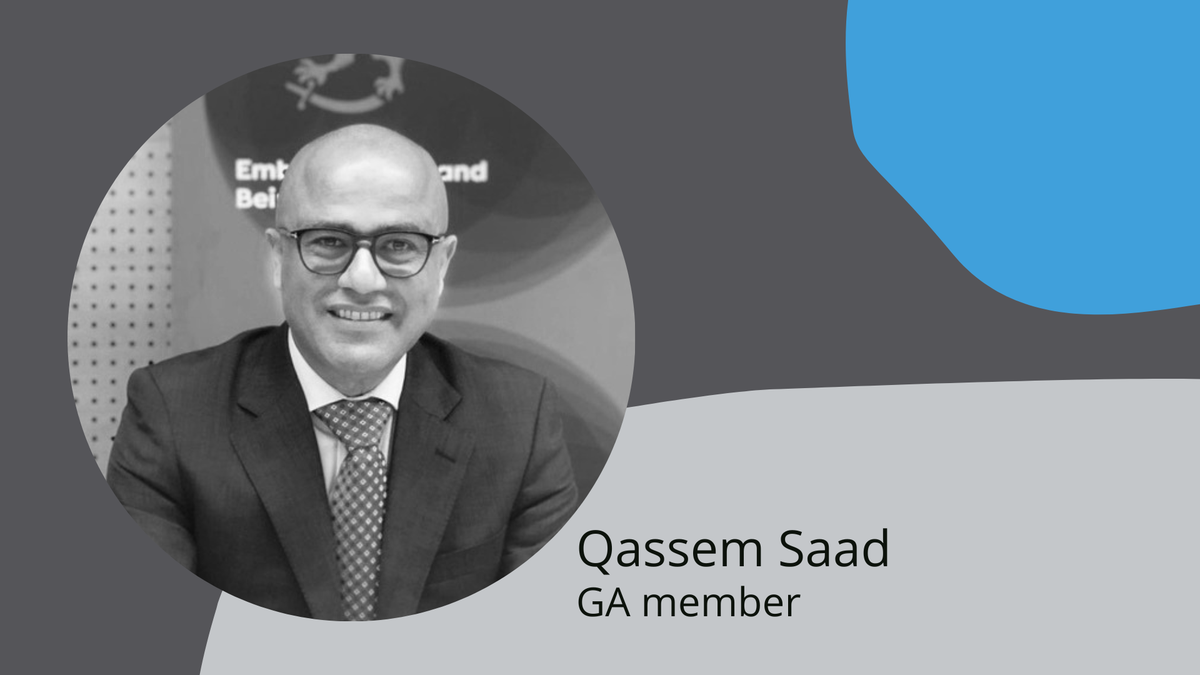Qassem Saad

Dr. Qassem Saad brings more than twenty-five years of advocacy experience and leadership in Lebanon and in the MENA Region. Qassem is a dedicated children’s rights advocate and has been working in the domain of children’s rights since 1987. After completing his PHD in Human Rights and Community development, Qassem worked hard to re-visit and develop Nabaa scope of work in order to have solid changes based on the theory of change.
Late 80s Dr. Qassem joined Save the Children – UK in the age of 20s, where he worked as a team leader then become a deputy program director and managing the Advocacy and non-formal Education team.
In 2001, Dr. Saad headed a core team of 9 x-save the children specialists succeeds to establish Developmental Action without borders – Naba'a and played a role as Director due to the fact that the first 5 years were invested in laying the foundation of the organisation, and then he shifted into the External Relations and now as Senior Director of Naba'a.
In this role, Qassem provides overall strategic leadership to Naba'a policy development and its advocacy, training and research unit were he provides communication guidance and support, particularly to organisations with leadership and management challenges and those seeking to establish an empowering organisational culture. Qassem is driven by his optimism and strong desire to contribute to improving people’s lives especially children. That’s why he dedicates his education path and career to bringing a wide range of operational and technical supports to children and human rights organisations in Lebanon and in the MENA Region.
Since 2017, Dr. Saad serves as chairman of Naba’a that promotes child rights and community development. In that capacity, he supports the organisation’s mission and the legal accountability for its operation.
His main roles and efforts are in charge of establishing a clear organisational mission, forming the strategic plan to accomplish the mission, overseeing and evaluating the plan's success, hiring a competent executive director and providing adequate supervision and support to that individual, ensuring financial solvency of the organisation, interpreting and representing the community to the organisation, and instituting a fair system of policies and procedures for human resource management.
In the context of Covid-19 and the deterioration of the socio-economic situation, Dr. Saad seeks to gather and unify efforts to ensure the dignity of people, especially the refugees in Lebanon, who are now facing the most difficult challenges were life saving is considered as first priority now.
I am a member of the ACB and the GA since 2016.
Becoming a member of HQAI would help to disseminate the ideas I believe in regarding the mechanisms and literature of working with marginalised communities. Since the beginning of my work in the domain of child and human rights, I have realise the need for a package of standards that brings together the different directions and style of work of organisations working in the humanitarian field, especially in light of emergencies. These standards will push the level of work of humanitarian organisations forward and thus reflect positively on the performance of organisations and devote concepts of the best interests of marginalised groups in our societies. These standards would narrow the gap and the practice between local and international organisations and United Nations organisations, where everyone seems to read from one book.
HQAI is one of the frameworks that no one disagrees about as it is suitable to be the compass of the work of all organisations, and it also provides mechanisms through which it can brings the voice of marginalised people to higher levels, so the executing organisation is not the highest authority from the point of view of the beneficiaries and thus this is enriching the behaviour, concepts and structures of the organisation to achieve the desired effect.
In Naba'a, we always seek progress, improvement and development of work mechanisms, and we also need an instrument of measurement (which is HQAI in our case) to decide whether we are progressing in the right direction or not?